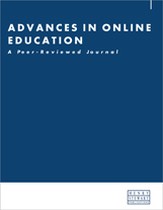From small acorns: Using a creative metaphor in postgraduate course design
Abstract
The acceleration of online education especially during the COVID-19 pandemic has been well documented, and many educational institutions prepared online materials for their learners with great success. Existing fully online programmes, however, continued to operate and be developed as a matter of course. To expand the online Master’s portfolio at the University of York, a new Master of Business Administration (MBA) programme was proposed. The use of a visual metaphor in teaching is not uncommon; however, the metaphor of a tree allows a path to be traced from the roots/key themes to the fruit/key skills. The metaphor works as a template or map showing how programme learning outcomes are linked to module learning outcomes. The tree metaphor also has transferable applications such as embedding employability or decolonising the curriculum. Using the tree as a template enables future-proofing of the course’s integrity, because revisions can be embedded and linked at an ideas stage rather than in a more ad hoc manner. Examining the underpinning concepts which were derived from the University’s strategy, this paper explores the influences on the MBA’s programme design and how the inspiration and subsequent adoption of a metaphorical tree facilitated the construction of a relevant, creative and coherent programme.
The full article is available to subscribers to this journal (subscription is free).
Author's Biography
Jane Neal-Smith is Director of Academic Operations in the School for Business and Society at the University of York. She previously held the role of Director of Online Programmes and is the Director of the new online MBA course. Jane holds a PhD in industrial psychology from the University of Bradford, where her thesis examined the working lives of British women airline pilots. She is joint editor of Absent Aviators published by Ashgate. Jane has worked in the field of management education for over 22 years in a variety of roles and she is a Senior Fellow of the HEA and a Certified Management and Business Educator.
Nathan Page works as an Educational Adviser for online learning in the Programme Design and Learning Technology team at the University of York. He previously worked as an English teacher in Japan and as a lecturer in applied linguistics at Aston University (both for approximately four years). Before the lecturing role he completed a PhD in applied linguistics at York St John University. His current focus is on programme design and fully online learning, particularly in terms of developing and enhancing practice in the design and delivery of online learning.
Citation
Neal-Smith, Jane and Page, Nathan (2022, September 1). From small acorns: Using a creative metaphor in postgraduate course design. In the Advances in Online Education: A Peer-Reviewed Journal, Volume 1, Issue 1. https://doi.org/10.69554/ASSA1464.Publications LLP
